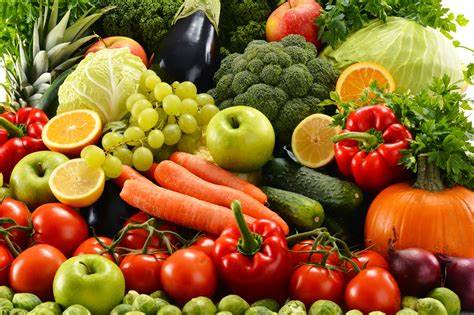The positive effects of good nutrition are insurmountable in a persons health.
We automatically presume that it’s solely related to our physical health and would go so far to say that our main focus of what we put in our mouths is how this affects our weight and how we look. This week I’m going to explore some of the positives of good nutrition for your mental health and how this may look in my clinical practice.
Food and Mood
Raw fruits and vegetables may be better for your mental health than cooked ones, according to a new study from the University of Otago in New Zealand 2018. The study found that people who ate more uncooked produce had lower levels of symptoms related to depression and other mental illnesses, compared to those who ate more cooked, canned, or processed varieties. This may be due to the fact fruit and veg has more nutrients in there natural form.
Overall the following were most strongly associated with positive mental-health outcomes
carrots, bananas, apples, dark leafy greens (such as spinach), grapefruit, lettuce, citrus fruits, fresh berries, cucumber, and kiwifruit.
In the raw vegetable category, celery, cabbage, red onion, tomato, and mushrooms were also associated with positive mood. The authors note that these vegetables can be considered as salads and they cite previous research linking salad consumption with lower stress levels. In the processed produce category, pumpkin, mixed frozen vegetables, potatoes and sweet potatoes, broccoli, and eggplant were linked to positive mood, as well.
Mood and Digestion
The gut-brain connection has been long discussed and a study at Harvard Medical School they are adamant that we pay attention to our gut-brain connection as it may contribute to anxiety and digestion problems.
The gastrointestinal tract is sensitive to emotion and is intimately related to the brain. Anger, anxiety, sadness, elation — all of these feelings (and others).
This is especially true in cases where a person experiences gastrointestinal upset with no obvious physical cause. For such functional GI disorders, it is difficult to try to heal a distressed gut without considering the role of stress and emotion and vice versa.
Based on this ask yourself;
Are your stomach or intestinal problems — such as heartburn, abdominal cramps, or loose stools — related to stress?
Food and Sleep
Sleep affects every aspect of our health and without it we are not the same mentally, with extreme lack of sleep resulting in psychosis. Fortunately, some foods and drinks contain compounds that help control parts of the sleep cycle, meaning that they may help a person both fall and stay asleep.
Taking both traditional knowledge and scientific research into account, as well as nutritional profiles, here are the best foods and drinks for sleep:
Almonds, which contain Magnesium and Calcium
Kiwi, which contains Folate and Melatonin
Camomile Tea contains Apigenin that seems to activate GABA A receptors, a process that helps stimulate sleep.
Walnuts, contain Calcium
Food and Body Image
Ok so I’m not talking about the best Fad diet where you can lose a stone in a day! I’m talking real food and real perceptions of ourselves. We need to stop looking as food as a “way of losing weight” but as a way of nourishing our bodies as a whole, giving us energy, healthy hair, skin, nails and eyes. I know this is easier said than done and I accept a lot of this has to do with how we were raised around food and our enjoyment of cooking it. However, from a clinical perspective the spectrum of eating disorders is very wide and relates to many of the patients I see.
Working from her private practice in Liverpool, Ishbel Straker specialises in the following:
Alcohol addiction
Drug addiction
Gambling addiction
Anxiety
Depression

